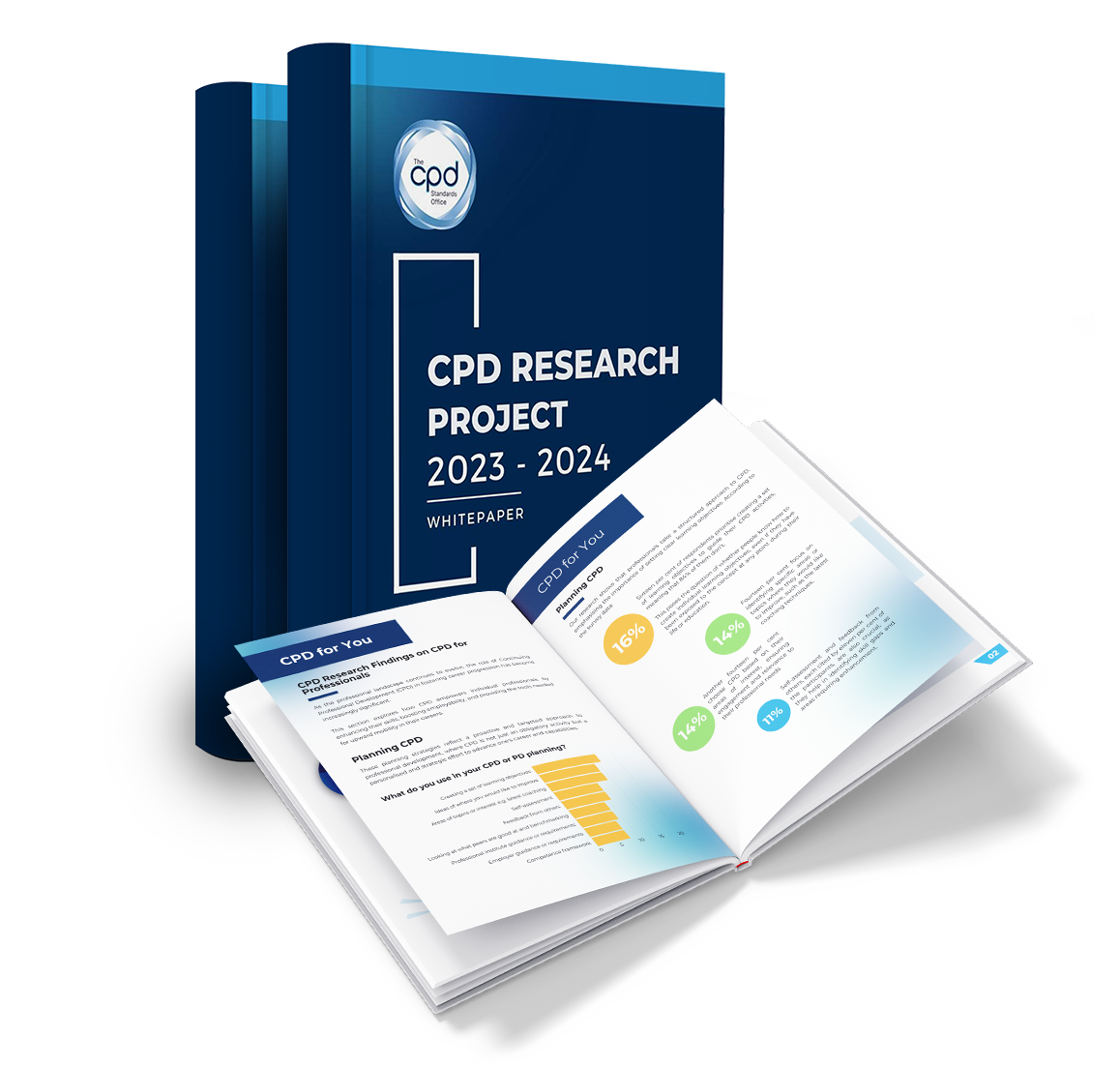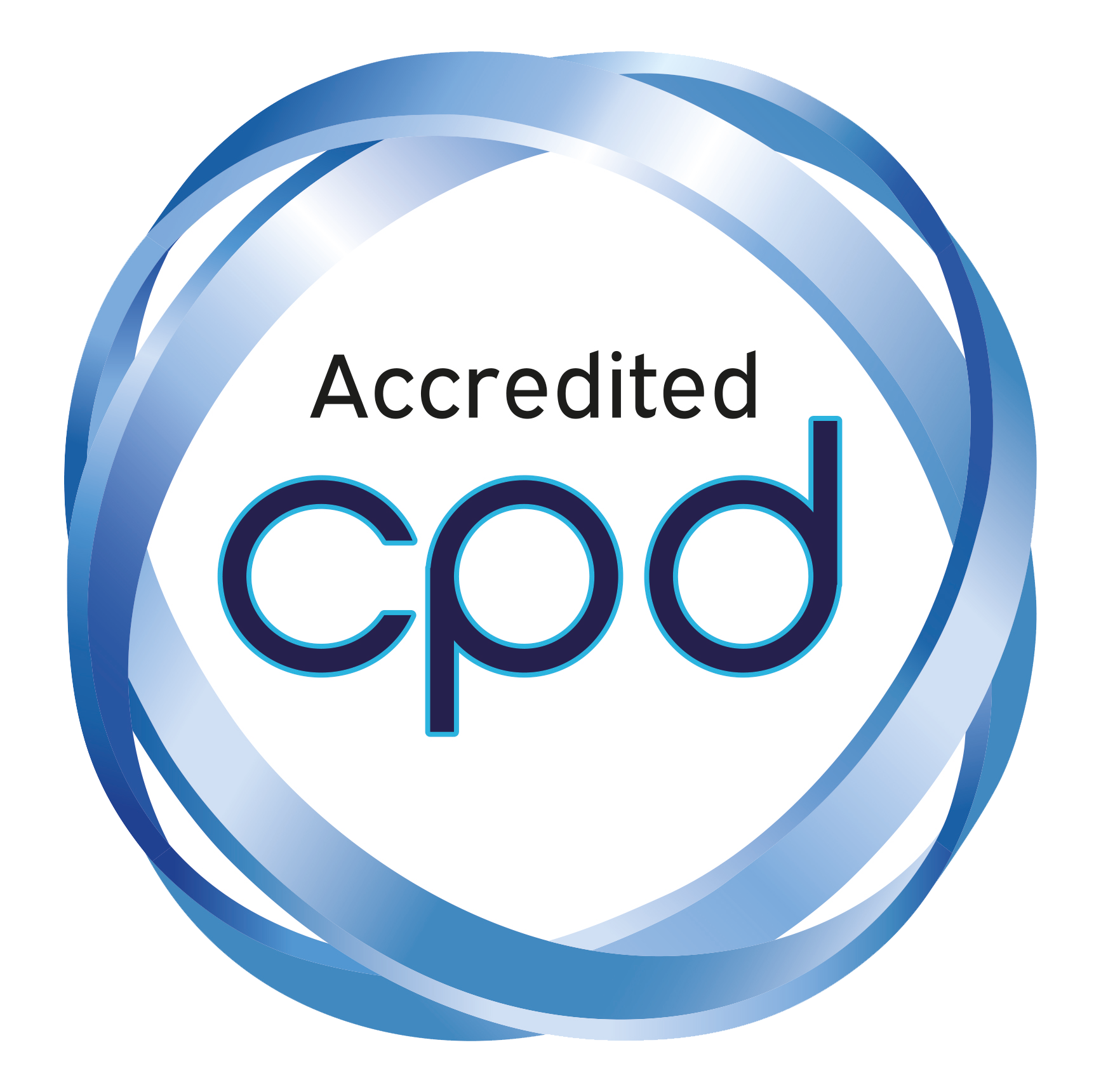THE CPD STANDARDS RESEARCH PROJECT
2024
2023-2024
CPD RESEARCH WHITEPAPER
We are delighted to release our latest whitepaper, offering critical insights into the evolving landscape of Continuing Professional Development (CPD). This comprehensive report highlights the diverse needs of professionals and the strategic importance of CPD in career advancement.

Key Findings
2023-2024 CPD Research Whitepaper
- 90% of respondents achieved career growth through CPD.
- Significant changes in CPD funding approach.
- Significant growth opportunities for training providers.
- Generational differences in CPD perceptions and plans to incorporate AI into career development.
- Recommended increase in CPD for training providers and their employees.
Key Supporter
The Open University is a key supporter for the 2023 and 2024 CPD Research Project.


The CPD Research, perhaps the largest in scale academic review of CPD best practices was the reason we found The CPD Standards Office. To find out about the initial work and about everone involved, please click here.
GET INVOLVED
The 2023 research study will be conducted over an 18-month period and will collate a mixture of quantitative and qualitative data streams from a wide range of stakeholders within the CPD arena, including:
The Learners: Professionals, Young People and Members of Professional Bodies.
The Providers: Employers, Training, Coaching and Online Educators.
The Bodies: Regulators and Professional Institutes.
Learners
- and -
Sign Up
Let us know if you're happy for us to email you a link to the survey. Emails and survey responses will not be matched to retain the anonymity of the survey results.
Training Providers
- or -
Let us know
Let us know that you're interested in participating, and we'll be in touch with more details soon.
Professional Bodies
- and either of the below options -
Let us know
Let us know that you're interested in participating, and we'll be in touch with more details soon.
WHAT IS CPD?
CPD or ‘Continuing Professional Development’ is simply about ongoing learning to keep up to date at work. We define CPD as:
"
A simple, structured approach to lifelong learning.CPD is an ongoing process of intentionally developing your knowledge, skills, and competence to be the best you can be at work and in your role.
"
CPD in 2024
The 2024 study explores CPD learning, professionalism and professional standards. Asking big questions, such as does technology drive our learning?
It will review how everyday training practices can be improved to raise the bar and enable individuals to get the most out of their CPD and lifelong learning. In turn, collectively creating a competent, high-performing workforce.
THE BRILLIANCE OF CPD
Every day is a CPD day.
Anyone and everyone undertake CPD daily, often without realising it. As humans, we are naturally inquisitive and seek to find solutions and answers to everyday challenges.
As CPD is an ongoing practice rather than a one-off activity, it operates through the complete personalisation of learning. We are in the driving seat when it comes to our ongoing professional education, and as a result, CPD is available to improve every skill and increase all career success.
OUR BIG QUESTIONS
CPD Learning Experiences and Careers
What value do young people and professionals associate with CPD?
What are the relationships between CPD, employability and salary/remuneration?
How do we create ‘good CPD habits’ to forge successful careers?
The Influence of Technology on CPD Learning
How will artificial intelligence and chatbots change learning?
What is the effectiveness and learning impact of face-to-face, digital, and virtual learning experiences?
How has technology shaped blended learning? What are the ingredients of a successful blended experience?
Professional Development Policy and Standards
How are professional standards defined in 2024?
What are the relevant criteria to accredit different types of CPD learning?
What are the best frameworks for creating positive and successful learning experiences?
MORE INFORMATION
Despite it being a common practice in many professions, CPD continues to be an area that has received surprisingly little attention from the academic community, with a dearth of scientific evidence available. This raises questions about the long-held beliefs and assumptions on learning impact, efficacy, individual competence and across professional communities.
Launched in 2010, the CPD Research Project was the first major scientific study that focused on the role of CPD (Continuing Professional Development) within individual professionals ‘lives’, organisational environments, and professional communities.
Based within the field of industrial and occupational psychology, it analysed individual employee perceptions of CPD and captured scientific data which confirmed the effectiveness of a range of professional development training activities. It also explored CPD policies and initiatives championed by professional institutes and regulators and identified challenges and flaws in how we undertake lifelong learning.
SUPPORTING ORGANISATIONS
FROM INITIAL RESEARCH
These organisations helped shaped the CPD Research that began in 2012 and have contributed significantly to the shaping of the CPD standards that we at The CPD Standards Office use to accredit high quality training.

Please note that the CPD Standards Research is a longitudinal, independent research project and was founded back in 2012. Professional institutes, regulators and employers are electing to voluntarily take part and contribute to the research project.
The CPD Standards Office does not have any direct or contractual relationships with any organisation participating in the research project, nor are they formally affiliated or classified as an accredited CPDSO provider.
Stay up to date
Updates and communications about the research project will be published here, and we will report key findings as they emerge from the research.
A whitepaper capturing insights, findings and implications for policy and standards will be published in Spring 2024.

